In Khartoum, A DNSSEC Deployathon

At the Internet Society Sudan Chapter office, adjacent to the west bank of the Blue Nile, four men decided to set up a local server capable of DNSSEC verification. It was an unplanned deployathon: a hands on, practical session in which a solution or service is deployed in a real-world scenario. Deployathons can help build technical capacity or set up a new service, and in this case, the men hoped to increase knowledge of DNSSEC and to prepare the individuals managing Sudan’s top-level domain (.sd) for signing in the near future.
During the SdNOG5 conference, these four men – we the authors, along with Jan Zorz of the Internet Society and Sander Steffann – continued the discussion on the deep technical challenges of deploying DNSSEC, and how Jan and Sander’s presence in Sudan provided an opportunity to leverage their experience with DNSSEC. We also reflected on the importance of DNSSEC for the country code top-level domain (ccTLD) and its positive impact on the national and international levels.

Having enjoyed some delicious Sudanese coffee, the four of us started to install a new server based on Centos 7, a Linux based operating system, from scratch. On this server, a DNS service Continue reading
The Importance of the Multistakeholder Approach: My Experience at the Internet Governance Forum

My name is Gustavo Babo, I’m from Brazil and I’m a Law and Political Science student. One of my biggest interests is to understand the best way to create national and international policies related to the Internet and other technologies such as Artificial Intelligence, IoT, and Blockchain. Having participated in the IGF as a 2018 Youth@IGF Fellow has enhanced my perspective on the future of all these technologies. Enjoy my opinion!
Throughout the IGF event, in all the panels I have attended, I have noticed one thing in common: the feeling that the human being has had less-and-less control over technology and its implications. The unpredictable factor for the future of some emerging technologies that have developed very rapidly is a situation that divided the event into two perspectives: some of those present believe that technology will bring to the world many positive situations and we need to collaborate with its acceleration to any cost. However, there are others who fear the speed and lack of control of the impacts of these technologies – which are really transforming the world – believing also that the human being may be tracing a disastrous path for itself, since we no longer control Continue reading
DNS-over-HTTPS (DoH) Support in Mozilla Firefox
Recent releases of Firefox have introduced the concept of DNS privacy under the name “Trusted Recursive Resolver”. Although Firefox ships with DNS-over-HTTPS (DoH) disabled by default, there has been some discussion within the Mozilla developer community about changing the default to “enabled”.
Although DoH is somewhat controversial because it moves control plane (signalling) messages to the data plane (data forwarding), and can thereby bypass local network policies, DoH advocates argue that it makes it harder to block or monitor DNS queries which is a commonly used method for restricting access to the Internet and/or monitoring user behaviour.
But putting these arguments aside, if you want to try out DoH then the DNS privacy (or “TRR” in Firefox speak) configuration in Firefox can be accessed as follows:
- Enter “about:config” in the address box of the browser
- Search for “trr” (without quotes)
A sample output of DNS privacy configuration in Mozilla Firefox is as follows:
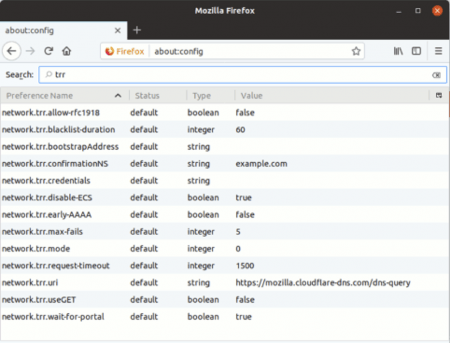
Firefox offers its technical users quite a few settings to play with, but the most important options (along with their recommended settings) for TRR are:
- trr.bootstrapAddress:(empty)
- trr.mode: 3
- trr.uri: https://mozilla.cloudflare-dns.com/dns-query
“network.trr.bootstrapAddress” specifies the IP address of a recursive resolver that should Continue reading
The Wired Nursery

This month, we’ve asked parents to share their experiences of raising kids in the tech age. Today’s guest author is Kimberly Rae Miller, author of Beautiful Bodies and the bestselling memoir Coming Clean.
Being a parent means living with constant, underlying anxiety over just about everything from how to slice hot dogs, to the age old winter jacket vs. car seat conundrum, to whether all the tech used to keep kids alive/make life with them easier is actually going to screw them up/destroy your life.
The latter takes a fair bit of cognizant dissonance. Most of us know at least some of the pitfalls of our wired life. After all, the digital assistant in my living room knew that I was pregnant again about five seconds after I did (and yes, there are Bluetooth-enabled home pregnancy tests), and voila, almost immediately targeted ads for diapers and nursery furniture started showing up when I shopped online. Most of the time I brush aside how uncomfortable it all makes me, because the gizmos and gadgets that make momming slightly easier are maybe worth the invasion of privacy.
When I was pregnant with my now two-year-old son, I knew that I didn’t know Continue reading
The Week in Internet News: India Rethinks Frequent Internet Shutdowns

Keep the pipes flowing: The Indian government’s Department of Telecommunications has told state governments they should avoid Internet shutdowns in situations not involving an emergency or public safety, Business Insider India reports. There were about 130 Internet shutdowns in the country in 2018, up from 79 the year before. But shutdowns close off residents’ access to banking and other online services, the agency said in its notice.
A fragmenting Internet: The global Internet is fracturing with governments increasingly exerting their influence on digital companies, markets, and rights, Foreign Policy says. The authors see a future Internet Warring States Period, in which several countries jockey for influence on the Internet, which could lead to a fragmented Internet in areas where there was once common ground.
Fake crackdown: Egypt is using a crackdown on so-called fake news to detain or jail “scores” of journalists, bloggers, and social media users, the Los Angeles Times reports. In 2018, Egypt jailed 19 journalists for allegedly “disseminating false information,” while all other countries jailed a total of nine journalists.
Beware the cryptominers: Internet users saw a 4,000 percent increase in crytomining malware in 2018, The Next Web says. MacAfee Labs noted more than 4 million new Continue reading
DNS Security & Privacy discussed at e-AGE18

The Internet Society continued its engagement with Middle East networking community by participating in the e-AGE18 Conference, where we took the opportunity to promote the importance of DNS Security and Privacy. The conference was held on 2-3 December 2018 at the Marriott Hotel in Amman, Jordan and was organised by the Arab States Research and Education Network (ASREN) and co-sponsored by the Internet Society.

Kevin Meynell from the Internet Society’s Middle East Bureau, highlighted the importance of implementing DNSSEC which allows DNS resolvers to authenticate the origin of data in the DNS through a verifiable chain-of-trust. This reduces the possibility of spoofing where incorrect or corrupt data is introduced into a resolver, or a man-in-the-middle attack whereby DNS queries are re-directed to a name server returning forged responses.
Unfortunately, only the Saudi Arabia ccTLD (.sa) has operationally deployed DNSSEC in the Middle East region at the present time, although Iran (.ir) and Iraq (.iq) have deployed it on an experimental basis. On the positive side, around 18% of DNS queries originated from Middle East countries are being validated compared to 12% globally, with Yemen (45.1%), Saudi Arabia (32.1%), Iraq (30.6%), Bahrain (23.2%) and Continue reading
Youth@IGF Fellow Story: How Far Are You From the Internet?

Growing up, a family friend will run all the way from her house with a pot of soup hoping to find out something we had at home that could complement the soup she had. On days when my twin sister and I were also missing a part of a meal, she will also return the good deed. Though the distance was not a short one, the thoughts of having a complete meal urged us on.
This neighbor of mine currently studies in Ukraine and none of us has or late had any thoughts of running all the way from Ghana to Ukraine – that will be a new record for the longest run.
The world is currently undergoing a difficult transformation with a rapid migration of almost all manual process to digital and the effect is a massive one both in advantages and disadvantages.
Just like distance resulted in the gap with my friend who now studies many miles away, several reasons have also been identified to be the ones causing the widening digital gap.
Some of the common ones are:
- Access – the ability to actually go online and connect to the Internet (largely relying on the constant supply Continue reading
Creating Networks – Youth and Internet Governance
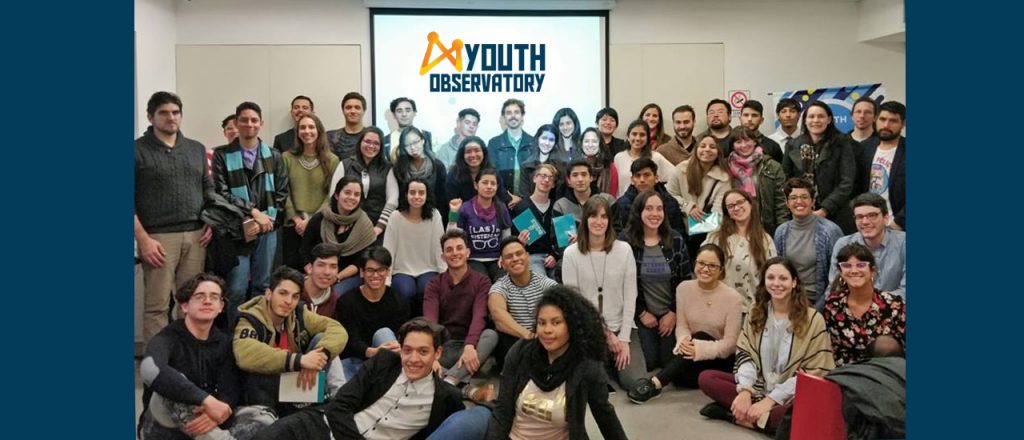
The “Youth Observatory” is a project created by the members of the Youth SIG of the Internet Society, which seeks to build a participative platform which uses different tools in order to bring the knowledge of the governance and the Internet’s principles to the youth, no matter the language, sex, race, religion, building new capacities among them. Participants: Juliana Novaes, Carlos Rubí, Ángel David Santiago, Eduardo Tome, Giovanna Michelato, Guilherme Alves, Isabela Inês, Jhon Caballero, Paula Côrte Real, Juan Pablo González, Augusto Luciano Mathurin, Renata Ribeiro.
 The Youth Observatory is a non-profit organization, made up of members of the Internet Society’s Special Interest Group (Youth – SIG), which seeks to build a participatory space where, through different platforms, tools and communication channels, young people can exchange knowledge about Governance and Internet principles.
The Youth Observatory is a non-profit organization, made up of members of the Internet Society’s Special Interest Group (Youth – SIG), which seeks to build a participatory space where, through different platforms, tools and communication channels, young people can exchange knowledge about Governance and Internet principles.
This organization was born in the context of the Youth@IGF 2015 initiative, a program led by Internet Society and the Internet Management Committee in Brazil (CGI.br) that tried to increase the participation of young people in areas of discussion on Internet Governance in Latin America and the Caribbean. At the time, the forum was attended by 120 young people from the region.
Since its creation, the Youth Observatory Continue reading
We Cannot Shape the Internet’s Future Without the Voices of Youth

After almost a decade, the Internet Governance Forum (IGF) remains a cornerstone of international Internet and local governance with participation from over 140 countries. The approach of the IGF is simple: anyone who has a stake in the future of the Internet can go and be heard. It was founded and operates on the principles of being bottom-up, transparent, and inclusive.
At the Internet Society, we want to empower youth as a key force in reforming decision making approaches to deliver sound Internet policies that put people’s interests at the center. With the goal of having Youth Voices heard, together we must demand world leaders to break down the barriers that shut their voices out. With this in mind, and together with our partners, we have brought more than 200 youth to IGF 2015, 2016, 2017 and 2018, under the Youth@IGF program. This is part of our commitment to ensure that the next generation of Internet leaders are primed to advance an open, globally-connected, secure, and trustworthy Internet for everyone.
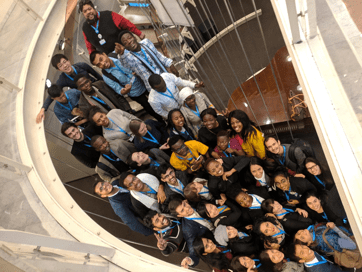
Some of the 50 Youth@IGF Fellows who attended this year’s IGF in Paris wanted to share with us their impressions of the Youth@IGF Program and the IGF.
Marko Paloski from Continue reading
Empowering Moroccan Cooperatives to Participate in the Digital Economy

KASBUY is a web platform to help Moroccan cooperatives, especially ones from women, to promote their handicrafts on international online markets. It will allow any registered cooperative, after following a well-defined and transparent process, to have its own online space to sell its products and manage its business and inventory management activities.
The project is supported by the Internet Society Beyond the Net Funding Programme and developed by the Internet Society Morocco Chapter in partnership with the public organization ODCO (Office du Développement de Coopération) and the private IT company Maghreb-SI.
Through the KASBUY platform, we aim to build an international community around Moroccan crafts and local products. The platform targets small women’s cooperatives that produce handicrafts and wish to reach a large audience through the Internet. In general, these cooperatives find it very difficult to sell their products either because of lack of visibility of their products, or because of the lack of competence in the digital payment process. The platform will provide more opportunities to sell their products.
The project aims to:
- Help cooperatives to overcome the difficulties of selling their local products
- Ensure stable salaries for cooperative members
- Develop the cooperatives in a sustainable way, and support Continue reading
Helping Rural Libraries in Armenia to Embrace the Digital Age
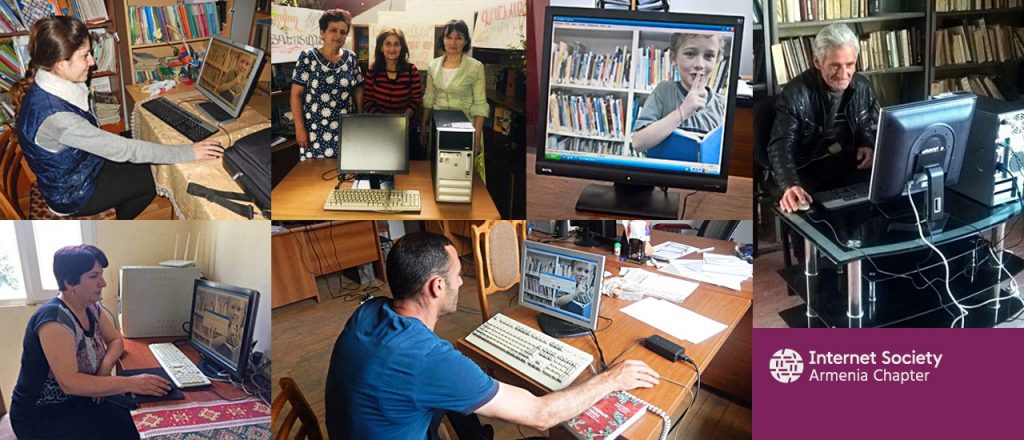
Although there are a large number of rural libraries in Armenia, the majority of them do not have computers or Internet access. Librarians are forced to deal with manual book circulation and lack of management programs. Residents are mostly unaware of the resources housed in the libraries. It became evident that libraries needed a technological shift to break from their current working routines and embrace change.
In 2015, The Internet Society Armenia Chapter started a pilot project to provide rural libraries with computers, software and training. The project team installed 20 computers with library management programs and estimated that, in order to cover all libraries, they needed to reach the number of about 1,000 computers.
In 2017, the Chapter started Computers, services and Wi-Fi Internet for rural libraries, a project supported by the Internet Society Beyond the Net Funding Programme, that aimed to install more computers to improve the librarians operation and provide lightweight library management programs as well as WiFi access for visitors. The project was presented at the national IGF on October 10, 2018.
 Igor Mkrtumyan, President of the Armenia Chapter, explains how their project is helping to address the needs of rural communities within the Continue reading
Igor Mkrtumyan, President of the Armenia Chapter, explains how their project is helping to address the needs of rural communities within the Continue reading
The Week in Internet News: Fallout from Australia’s Anti-Encryption Law

A lack of support: Australia’s new law requiring technology companies to give law enforcement agencies access to customers’ encrypted communications isn’t so popular with the public, The Economist reports. The government there received 343 public comments leading up to the vote in favor of the law, and only one person expressed support.
Minor offenses: Meanwhile, critics of the Australian law say it may be used to target suspects of minor crimes, The Guardian says. The law is neither “appropriate or proportionate,” one lawyer says. One of Australia’s spy chiefs is defending the law, however, saying it will be used to target terrorists, pedophiles, and other criminals, not law-abiding citizens, ABC News Australia reports.
Getting tough: The Russian parliament is planning to vote on a package of bills intended to increase penalties for spreading fake news, Euronews reports. One of the bills would allow for fines and a short jail sentence for people “expressing obvious disrespect” for society and state officials. The Dutch government is taking a different approach to fake news, by planning an online campaign to make voters aware of disinformation and help them recognize it, NLTimes says.
China vs. trolls: The Chinese government has detained 30 members of Continue reading
Bridging the Gender Gap in Serbia

We are delighted that our project, Digitally Unconnected Gender Gap (DUGG) has been chosen by the Internet Society as part of the Beyond the Net Funding Programme to work on digital gender issues in Serbia.
The gender digital gap is widely present in Serbia, but the lack of research data and statistics are making this problem invisible, both from the ones dealing with women’s rights, and the ones who are fighting for a just, accessible, and safe Internet for everyone. Our team will connect these two activists’ fields in order to put the light on the issue!
Through these project activities, the team from Serbia Chapter will be dedicated to explore how ICT technologies and Internet can play a role in decreasing the existing gender digital gap and how to take into consideration gender awareness in developing new and evolving technologies.
As women comprise half of the world’s population, the UN’s Sustainable Development Goals (SDG) should address each of the goals through a gendered lens. The DUGG plans to focus on the Sustainable Development Goals 4 (Quality Education), 5 (Gender Equality), and 9 (Industry Innovation and Infrastructures). However, if applications and services are developed by women, they would be more relevant Continue reading
Webinar: Can Consumers Trust Retailers’ Email? Findings from OTA’s Email Marketing & Unsubscribe Audit

Developing Community Networks in Northern Brazil: Strengthening Marginalized Communities

Today’s guest author is Carlos Afonso, executive director of Instituto Nupef.
Our aim is to contribute to the growth and improvement of community networks policies and practices in Brazilian rural areas by strengthening marginalized movements and communities. Our project is supported by the Internet Society Beyond the Net Funding Programme and developed by the Brazil Chapter in partnership with the Instituto Nupef (Center of Research, Studies, and Learning) as well as the involvement of local communities.
Nupef’s role helps to build a statement of needs perceived by the communities involved and an evaluation of infrastructural conditions in the area. It takes note of conditions for sustainable maintenance of the network; training for local people; constitution of a cooperative-like structure to operate, maintain, and further develop the network; as well as basic training on content development, user security, and privacy issues.
Although access to broadband Internet has been growing in Brazil, there is still a huge gap in marginalized regions and populations, especially in rural areas in the North and Northeast. This is the case of the Quilombola communities living in rural areas with very few telecommunications, and where over 300 thousand women make their living from gathering babaçu palm tree Continue reading
Tusheti Community Network One Year Later: Creating Impact, Sustainability, and Scalability
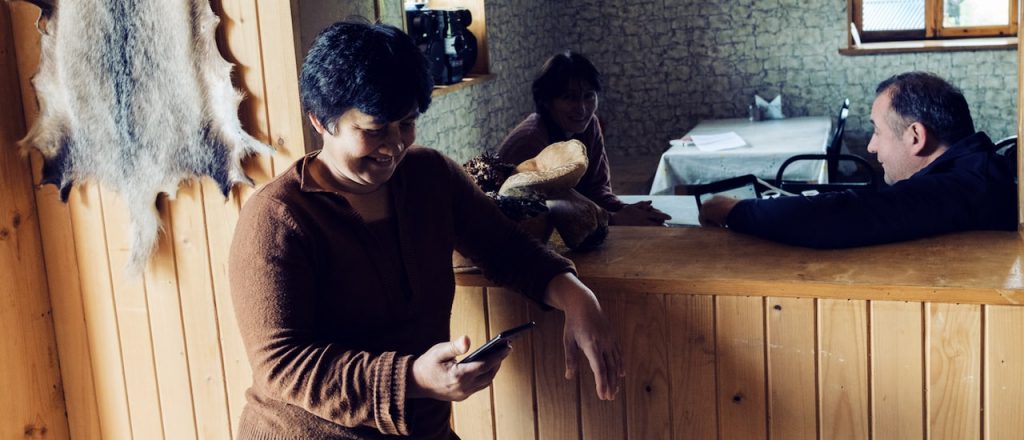
Connecting the most remote and challenging territories of any country to the Internet can be tough. Typically, Internet access spreads gradually from urban conglomerations towards smaller hubs, and finally, to the most remote and sparsely populated areas. This is just common business sense.
Many of these remote areas are unique in terms of their people, culture, and livelihood, and Internet access can make a world of difference. This was the case when the Internet Society, together with its local partners, launched the first community network in Georgia, in the mountainous region of Tusheti, in September 2017.
Creating Impact
One year on, the Internet has made a significant difference to the lives of the Tushetians. This week, the Internet Society published an impact assessment on the Tusheti community network highlighting the transformation in tourism, e-commerce, and people’s livelihoods.
The Internet has had a positive impact on tourism through more effective online advertising and sales, and through efficiencies in businesses operations. With these encouraging developments, local residents are investing in the construction and opening of new guesthouses. The Internet has also increased the levels of safety and mobility in this remote part of the world by providing a communications channel to Continue reading
Senegal Kicks Off Enhancing IoT Security Project
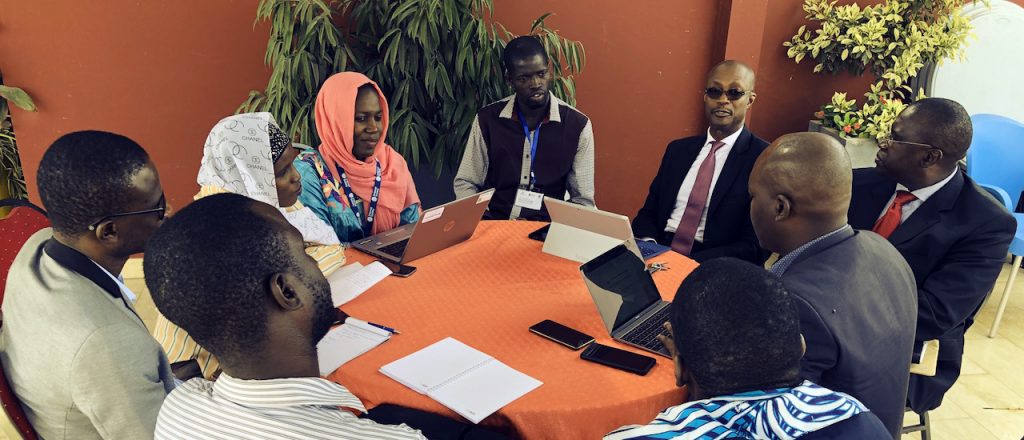
On April 4, 2018, the Canadian Multistakeholder Process: Enhancing Internet of Things (IoT) Security held its first convening in partnership with the Canadian Internet Registration Authority (CIRA); CANARIE; Innovation, Science and Economic Development (ISED) Canada; and the Canadian Internet Policy and Public Interest Clinic (CIPIC). Over 80 participants from government, academia, public interest, industry, and other organizations attended the first meeting and many have continued to engage at in-person and virtual meetings ever since. Over the past eight months, this group has experienced significant success in the areas of consumer education, labeling, and network resiliency. And these achievements have been well-noted on a global scale.
A delegation from Senegal came to Canada in July to meet with members of the Enhancing IoT Security oversight committee. The group was comprised of government officials, Senegal Chapter members, and staff from the Internet Society’s African Bureau. The delegation met with Canadian government officials, technologists, public interest groups, and North American Bureau staff to learn more about how and why the IoT security project was initiated, and what the group had accomplished to date. The group discussed the significant successes the Canadian multistakeholder group had already achieved, the challenges it faced, Continue reading
Murambinda Works Community Engagement Workshop in Buhera: Meeting Challenges with Opportunity
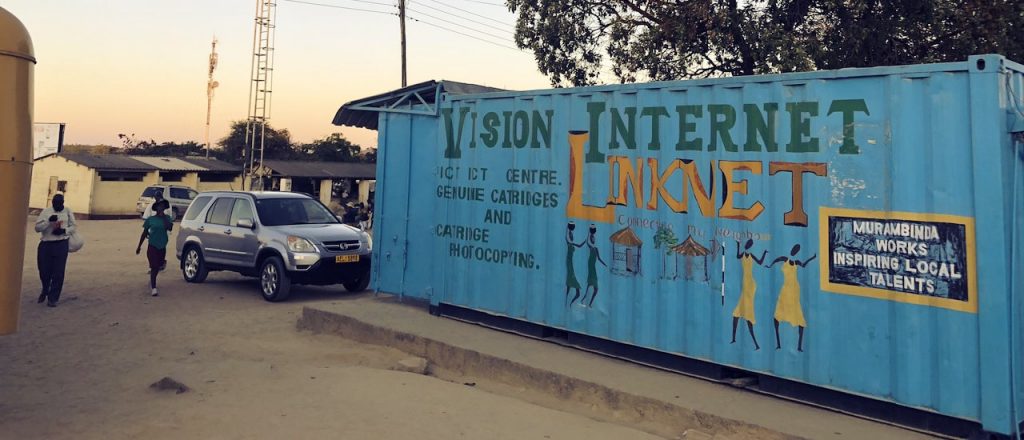
Over 100 community members, including head masters, government officials, teachers and heads of primary and secondary schools gathered in Buhera rural district council of Zimbabwe on 15 November, eager to engage in discussions related to the initial deployment of the Murambinda Works Community Network. Schools, health and the local authority facilities have been earmarked as the initial benefactors for the inaugural roll out of the Murambinda Works Community Network.
The CEO of Murambinda, Mama Emilie gave a welcoming speech followed by the district school inspector of Buhera who talked about the importance of equipping their schools with ICT. “We cannot imagine a good curriculum that has not taken into consideration ICT. The partnership with Internet Society is a blessing to the district. We want to support it until infinity,” he said. The inspector also mentioned some of the challenges they are facing in their schools including the lack of power, unavailability of computers and connectivity. (Since 2015, 1200 teachers have been trained in ICT, but couldn’t do much with their acquired knowledge.)
TelONE, the national Telecommunications parastatal company with infrastructure in Murambinda Town, was also present at the workshop. “One man cannot make it but we can work together Continue reading
The Week in Internet News: Australia Adopts Controversial Encryption Law

Australia vs. encryption: The Australian Parliament has passed a law that requires tech companies to give law enforcement agencies there access to encrypted communications, the New York Times reports. Several tech companies and privacy groups opposed the law, saying it hurts efforts to protect data from hackers. Fortune, which called the law “draconian,” says it will create headaches for large tech companies.
Slow rolling: While several news stories this year talked about quantum computing being an eventual threat to encryption, that possibility is still more than a decade away, according to a report from the U.S. National Academies of Sciences, Engineering, and Medicine. The U.S. may need to invest heavily in quantum computing to retain a global lead in the technology, the report recommends. Nextgov has the story.
Filling the pipes: Botnets of compromised Internet of Things devices make up more than three quarters of the malware on communication service provider networks this year, up from 33 percent of the malware in 2016, Infosecurity reports. Hackers are increasingly targeting IoT devices instead of PCs and other traditional systems.
Blockchain tackles phishing: A company called MetaCert wants to use blockchain to help fight the scourge of phishing emails, Wired. Continue reading
Future Thinking: Orla Lynskey on Data in the Age of Consolidation

Last year, the Internet Society unveiled the 2017 Global Internet Report: Paths to Our Digital Future. The interactive report identifies the drivers affecting tomorrow’s Internet and their impact on Media & Society, Digital Divides, and Personal Rights & Freedoms. We interviewed Orla Lynskey to hear her perspective on the forces shaping the Internet’s future.
Orla Lynskey is an associate professor of law at the London School of Economics and Political Science. Her primary area of research interest is European Union data protection law. Her monograph, The Foundations of EU Data Protection Law (Oxford University Press, 2015), explores the potential and limits of individual control over personal data, or “informational self-determination’” in the data protection framework. More recently, her work has focused on collective approaches to data protection rights and mechanisms to counterbalance asymmetries of power in the online environment. Lynskey is an editor of International Data Privacy Law and the Modern Law Review and is a member of the EU Commission’s multistakeholder expert group on GDPR. She holds an LLB from Trinity College, Dublin, an LLM from the College of Europe (Bruges) and a PhD from the University of Cambridge. Before entering academia, she worked as a competition lawyer in Brussels Continue reading